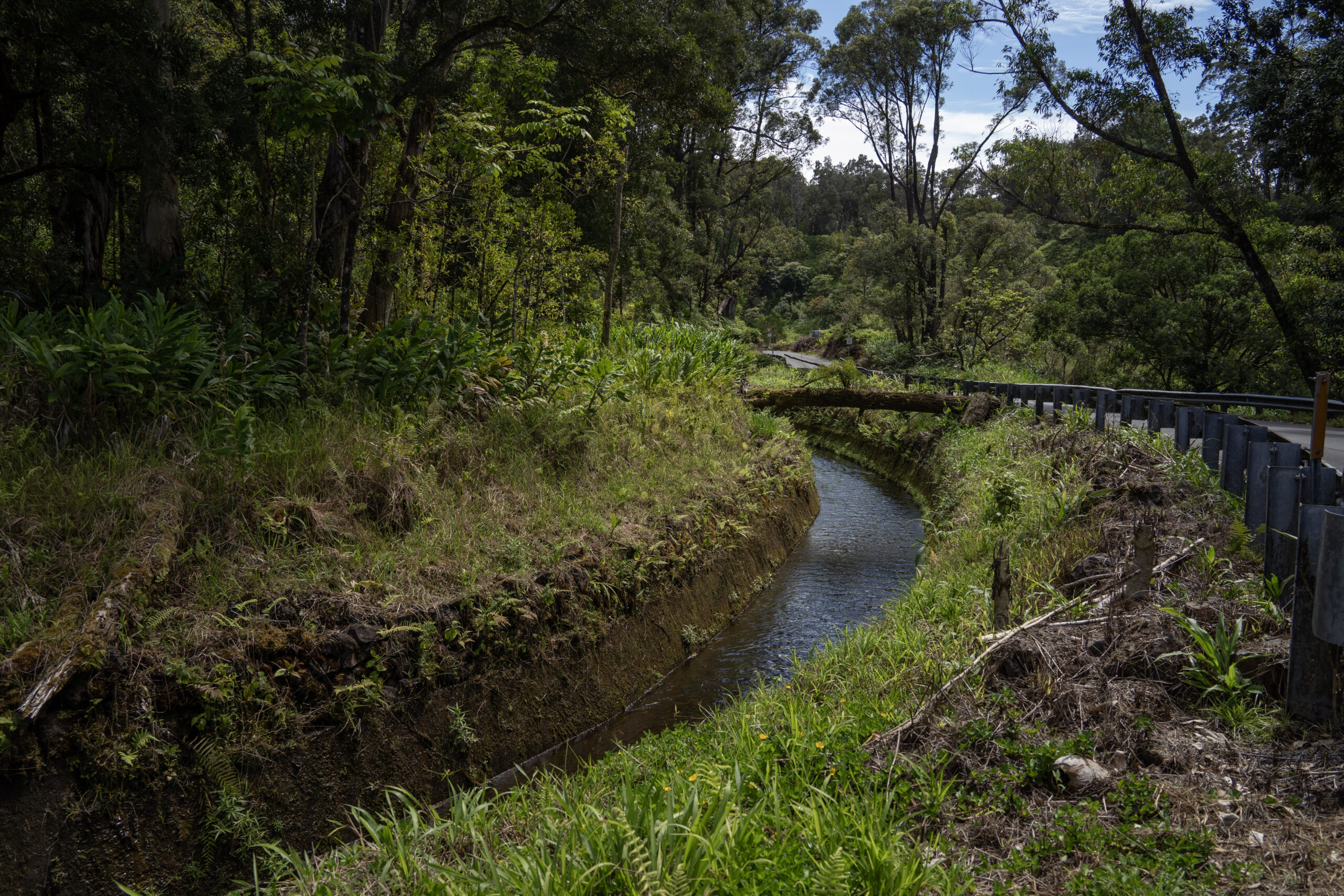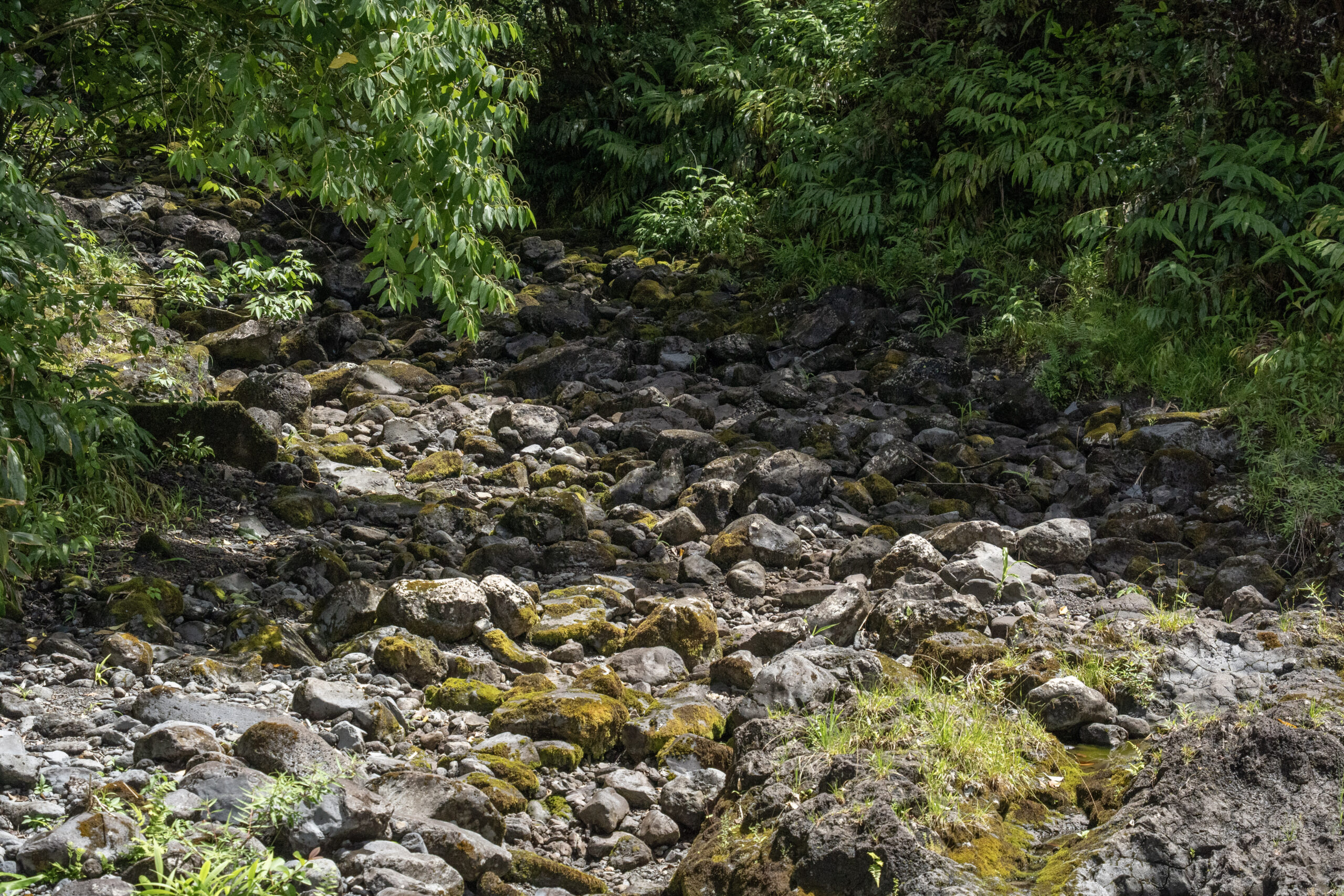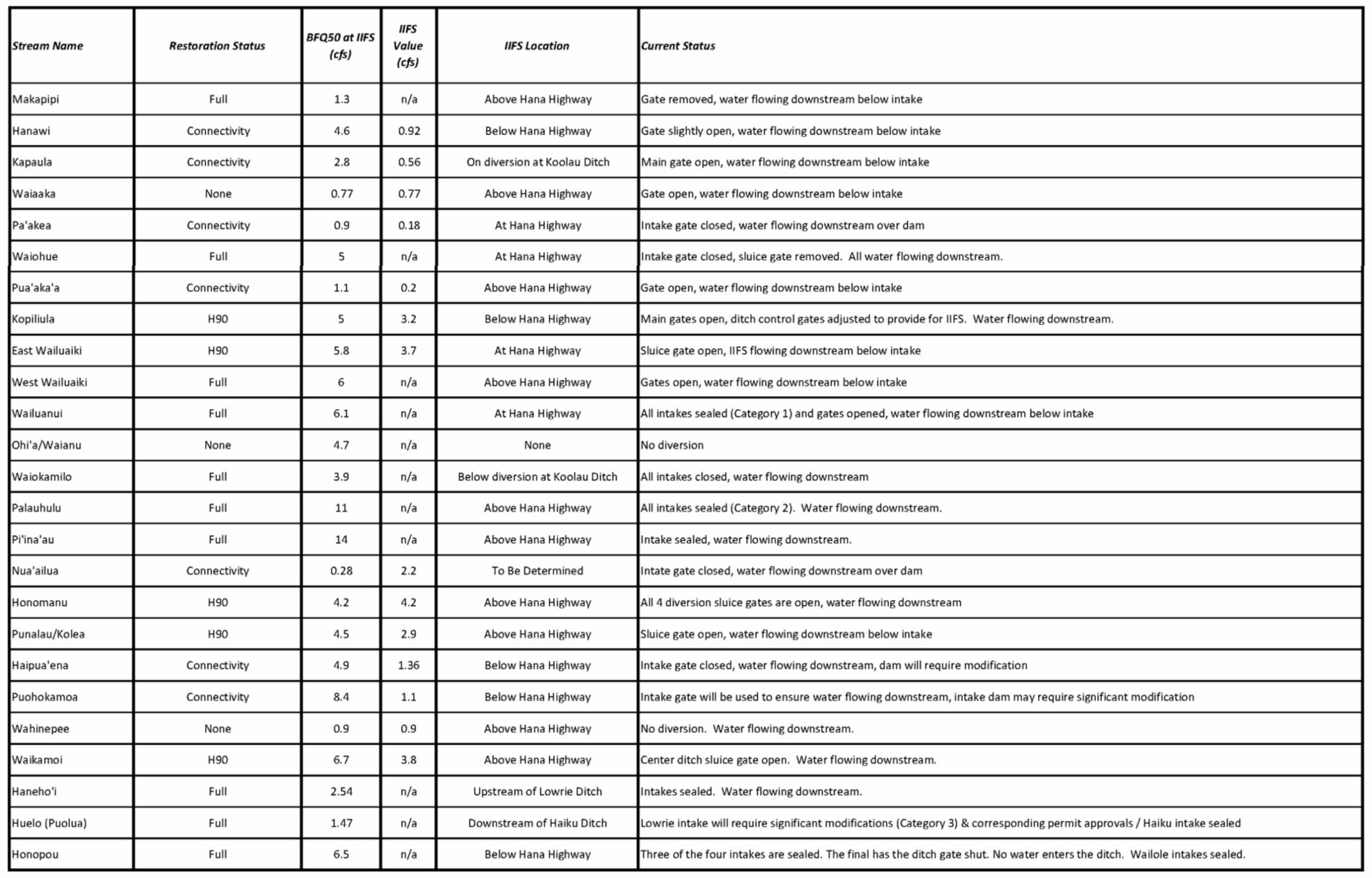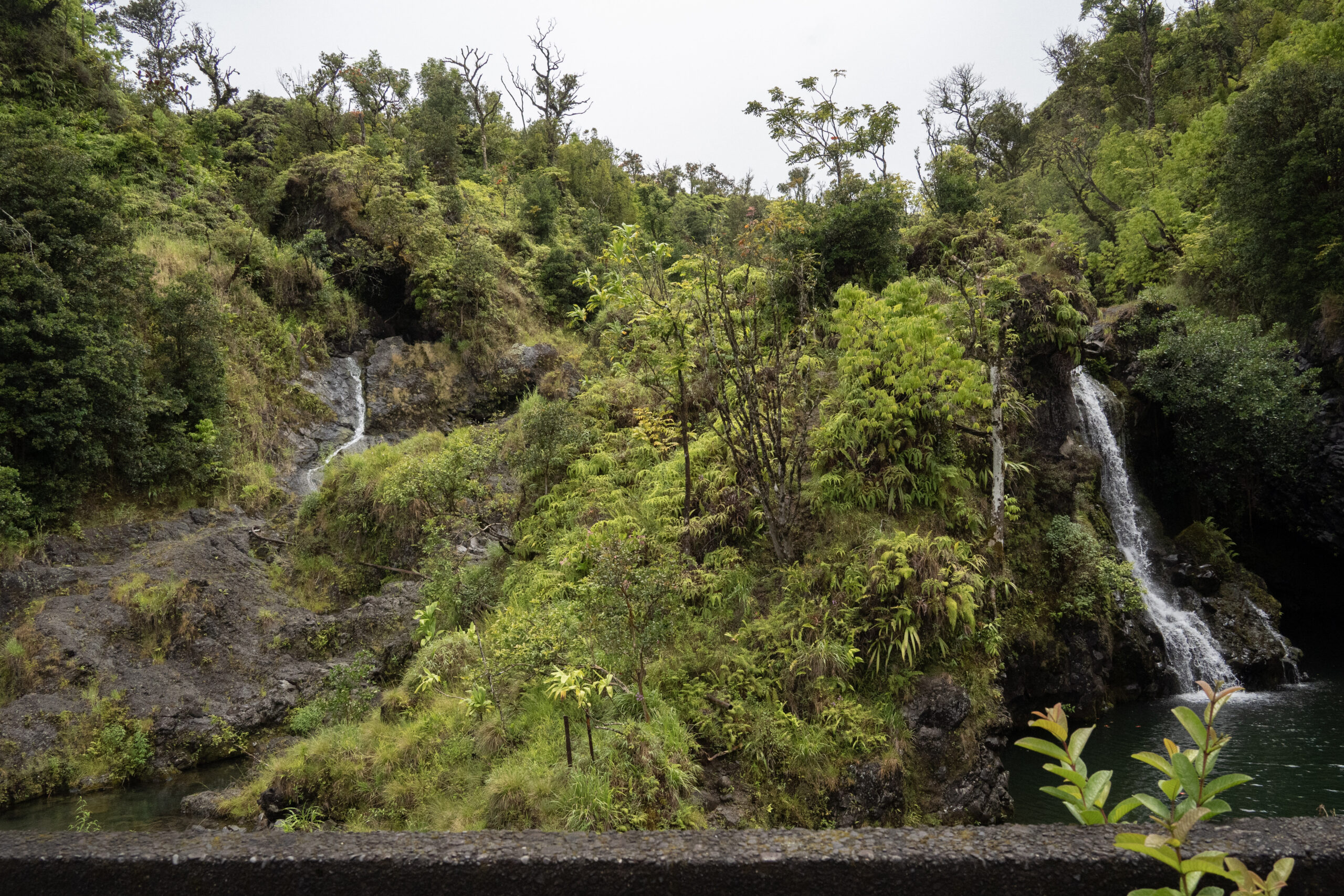 Hawai‘i Journalism Initiative
Hawai‘i Journalism InitiativeEnd of an era: Alexander & Baldwin transfers full ownership of East Maui Irrigation to Mahi Pono

Farming company Mahi Pono has reached an agreement with Alexander & Baldwin to take over full ownership and operations of East Maui Irrigation, the extensive system of ditches and tunnels that diverted water from East Maui streams to sugar plantations for nearly 150 years.
On June 17, the companies struck a deal to transfer A&B’s 50% ownership to Mahi Pono and forego the $2.7 million Mahi Pono was originally set to pay for the remaining half of the system.
HJI Weekly Newsletter
Get more stories like these delivered straight to your inbox. Sign up for the Hawai‘i Journalism Initiative's weekly newsletter:
“While Mahi Pono continues focusing on agricultural operations, A&B has moved to focus on developing its core commercial real estate business,” Mahi Pono said in a statement to the Hawai‘i Journalism Initiative on Monday. “With diverging missions, the parties have agreed to proceed down separate paths.”
The East Maui Irrigation system, which includes 24 miles of ditches and 50 miles of tunnels, is one of the last physical — and one of the most controversial — reminders of the sugar plantation and A&B’s outsize influence on Maui.
Beginning with the $80,000 private construction of the Old Hāmākua Ditch between 1876 and 1878, EMI grew into one of the biggest irrigation systems in the U.S. For decades, the system diverted water from East Maui streams to feed the sugarcane grown in Central and Upcountry Maui by A&B’s subsidiary Hawaiian Commercial & Sugar Co. But in 2016, facing mounting losses, A&B announced it was closing HC&S, the last sugar plantation in the state.
In December 2018, A&B sold more than 41,000 acres of former sugarcane land to Mahi Pono for $262 million, with the two companies jointly owning East Maui Irrigation.
Since then, A&B has shifted its focus to commercial real estate, investing the proceeds from the sale to Mahi Pono into new acquisitions of commercial properties across the state.
A&B spokesperson Andrea Galvin confirmed in a statement to the Hawaiʻi Journalism Initiative on Monday that the agreement “is a continuation of A&B’s simplification strategy and allows us to focus on growing our core business as a commercial real estate company in Hawai‘i.”
Mahi Pono said the latest transition would not change East Maui Irrigation’s operations, staffing or service to water users. While EMI’s system was ordered by the state water commission to return some water to streams in recent years, it continues to divert water for irrigation of Mahi Pono’s 12,000-plus acres of crops as well as to service more than 35,000 Upcountry residents on the Maui County Department of Water Supply system.
Mahi Pono, which is a venture between California-based Pomona Farming and PSP Investments, one of Canada’s largest pension investment managers, did not respond to additional questions by Monday evening.

In the original agreement, the two parties had agreed A&B would sell its remaining half to Mahi Pono for $2.7 million “upon the occurrence of certain events in the future.” They also agreed that the purchase price would be cut by $62 million if A&B/EMI couldn’t secure long-term water leases from the state or deliver Mahi Pono the amount of water it needed for its operations.
A&B and EMI have yet to secure a long-term lease. In December, they were able to get a revocable permit for water use from the state water commission, but those have to be renewed annually.
Neither A&B nor Mahi Pono answered questions about Mahi Pono getting its money back, but under the latest deal, A&B is set to pay Mahi Pono $55.3 million in installments of four years, including $10 million up front, $12.65 million each on the first and second anniversaries of the agreement’s execution, and $10 million each on the third and fourth anniversaries.
When A&B was asked what prompted the Honolulu-based company to transfer its ownership now or for an explanation for the payment structure to Mahi Pono, Galvin said A&B had “no further information to provide.”
Mahi Pono is inheriting a system that in recent years has required many changes to return water to long-diverted East Maui streams under a decision by the state water commission in 2018. For decades, East Maui kalo farmers, along with Native Hawaiian and environmental advocacy groups, had fought to restore streamflows and halt the diversions that they said dried up their lo‘i kalo, destroyed stream life and drove farmers from the area.

The revocable permit issued by the Board of Land and Natural Resources in December came with conditions that included limiting water waste, preparing a progress report on the removal of diversions and fixing of pipes, as well as continuing cleanup in streams.
Through the first four months of the year, an average of 31 million gallons of water per day was diverted for Mahi Pono’s farming operations, 2.66 million gallons per day for the county’s domestic system and 0.49 million gallons per day for the county’s Ag Park in Kula, according to a report as of April.
Mahi Pono is currently growing citrus, coffee, macadamia nuts, sweet potatoes, avocados and other crops on 12,244 acres, according to its first-quarter report for 2025.
Water losses are allowed under the permit as long as they don’t exceed 22.7%. Through the first three months of the year, an average of 2.55 million gallons per day in the field system and 2.13 million gallons per day in the county’s diverted reserve were lost each month, the first-quarter report showed.
Mahi Pono’s takeover of A&B’s last sugar plantation holdings on Maui may be the end of an era, but water policy expert Jonathan Scheuer pointed out “the end of the era has been happening for decades now” as sugar plantations across Hawai‘i steadily closed.
“It’s the next chapter, but the final chapter, the end of the era, will be when we successfully follow the people’s will and implement the water authority’s charge to manage the system,” said Scheuer, chair of the ‘Aha Wai O Maui Hikina, the East Maui Regional Community Board.
The board is made up of 11 residents and water experts from the four areas affected by the water licenses: Nāhiku, Ke‘anae, Honomanū and Huelo. It was created along with the East Maui Water Authority through a charter amendment passed by voters in 2022, in hopes that the county would eventually take over the East Maui water system.

“It’s completely feasible” for Maui County to manage the EMI system, Scheuer said, pointing out that water authorities across the U.S. have done similar things. He said Maui County already runs a complex water supply system that is highly regulated and “we should be able to run a system that was designed in part over 150 years ago.”
When asked what Mahi Pono’s full ownership of EMI meant for the community, Scheuer said “it’s difficult to say.”
“Is a company that was headquartered in Hawai‘i a better company to negotiate and work with than a company that’s owned in a foreign country and runs from there?” Scheuer said. “Their local staff is great, but I am sure that people making the significant decisions are based in Canada.”
Gina Young, director of the East Maui Water Authority, saw A&B’s move as a positive sign.
“A&B’s decision to stop their pursuit of a 30-year water license for Mahi Pono is encouraging, but I am also hearing concerns about the continued lack of community input in decision making,” Young said in a statement. “People feel that if decisions are made outside of Hawaiʻi and outside of the U.S., they will not be for our benefit.”
Young said during public meetings last week that negotiations with Mahi Pono over management of the system are still in the early stages.
She added that “residents delivered a powerful reminder” during last week’s conversation series: “We live on an island. We can’t import water. What we have is all we have — and it’s up to us to manage it wisely and sustainably now. We may not get another chance.”




